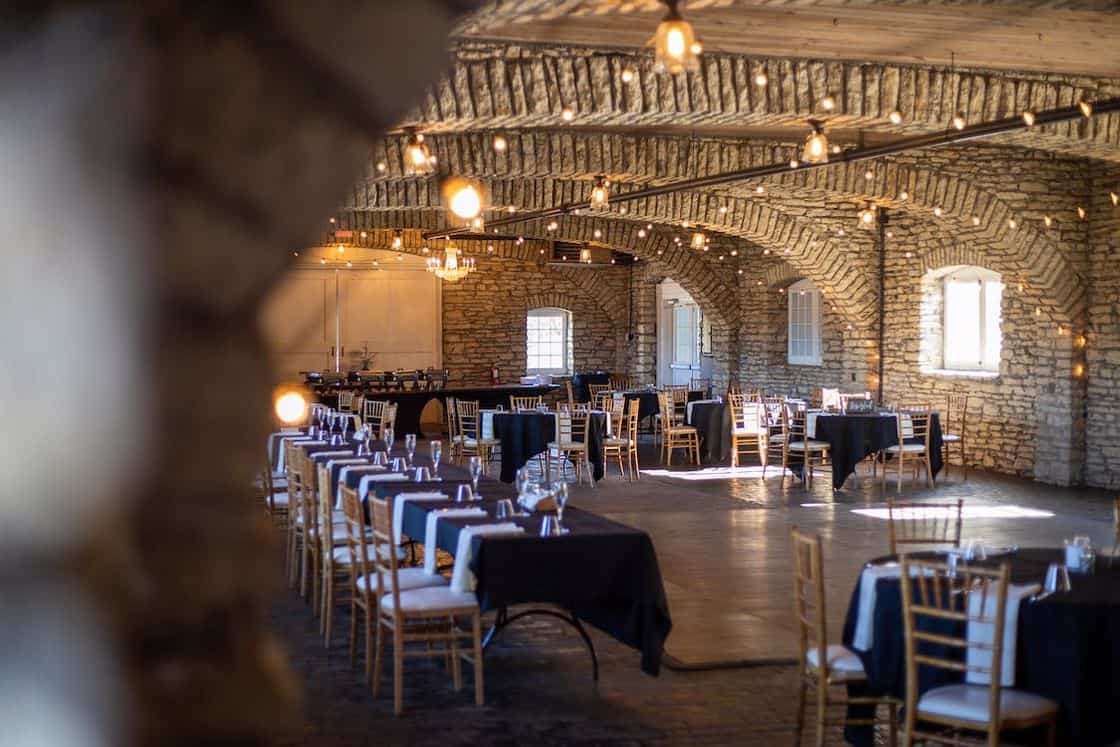Understanding Event Production: Why It Is Vital for Successful Events
Event production plays an important role in forming successful events. It entails mindful preparation, coordination, and implementation to ensure every information lines up with the event's vision. This process not only boosts guest experiences but also promotes significant connections amongst participants. Understanding the details of event production can greatly affect the general end result. What are the crucial elements that contribute to an effective event, and how can they be successfully managed?
The Role of Event Production in Developing Unforgettable Experiences
Numerous elements contribute to the success of an occasion, event production plays an essential function in crafting memorable experiences. This complex process includes numerous elements, consisting of planning, logistics, and execution. Efficient event production guarantees that every information straightens with the overall vision, developing a seamless flow that captivates participants. By coordinating timelines, taking care of resources, and looking after technological aspects, event producers establish a foundation for impactful experiences.Moreover, they curate atmospheres that reverberate with the target audience, boosting interaction and psychological connection. From choosing ideal locations to incorporating ingenious innovation, the selections made throughout production substantially affect just how guests regard and keep in mind the event. By focusing on top quality and attention to information, event production transforms regular celebrations into extraordinary minutes, leaving lasting impressions. Eventually, the proficient orchestration of these parts defines the essence of an occasion, showcasing the importance of specialist event production in accomplishing outstanding results.
Secret Parts of Effective Event Production
Effective event production rests on several key parts that assure success. Preparation and coordination develop a strong structure, while technical setup requirements attend to logistical needs. Additionally, executing target market interaction approaches boosts the overall experience, making the event unforgettable.
Preparation and Coordination
Planning and control serve as the backbone of effective event production, making certain that every information aligns seamlessly to develop a remarkable experience. Reliable preparation entails establishing a clear vision and purposes, while control requires the precise organization of logistics, timetables, and resources. A distinct timeline is vital, directing all stakeholders with essential turning points and jobs. Communication plays a critical function, cultivating collaboration among staff member, suppliers, and location staff. Normal conferences and updates assist to address difficulties immediately, making certain that every person remains lined up with the event objectives. Eventually, a structured approach to planning and control not only enhances performance but also considerably adds to the overall success and satisfaction of the event for guests and coordinators alike.
Technical Arrangement Needs
A successful event counts greatly on its technical configuration needs, which incorporate necessary components such as audio-visual devices, illumination, staging, and connection. Audio-visual devices includes microphones, speakers, and projectors, ensuring that discussions and performances are delivered clearly. Proper lights improves the ambiance and highlights vital locations, while organizing supplies the necessary system for audio speakers and entertainers. Connectivity, including Wi-Fi and electrical gain access to, is vital for smooth interaction and innovation integration. Each component must be meticulously prepared and implemented, customized to the event's particular requirements. Inadequate technological setups can cause interruptions, negatively affecting the overall experience for attendees, underscoring the importance of complete prep work and attention to information in event production.
Target Market Interaction Strategies

The Value of Planning and Sychronisation
Preparation and control are important to the success of any type of event production. Effective timeline monitoring, resource allowance techniques, and team interaction characteristics play necessary duties in ensuring that all aspects come together seamlessly. Without a structured strategy to these aspects, events take the chance of facing delays, spending plan overruns, and miscommunication among employee.
Effective Timeline Administration


While effective event production typically rests on creative thinking and execution, effective timeline administration remains a crucial aspect that can not be overlooked. A well-structured timeline works as the backbone of any kind of event, ensuring that each stage is performed in a prompt manner. It permits for the sychronisation of different tasks, from location arrangement to visitor arrivals, while stopping possible traffic jams. By plainly describing due dates and obligations, event coordinators can preserve emphasis and adjust to unforeseen challenges. Additionally, a carefully crafted timeline cultivates communication among employee, promoting accountability and cooperation. Eventually, effective timeline administration not just enhances functional efficiency however additionally contributes considerably news to the total success and smooth execution of the event, leaving guests with a remarkable experience.
Resource Allowance Approaches
Effective resource allowance approaches are essential for the effective execution of any kind of event. Proper planning enables event coordinators to recognize and disperse sources, such as finances, personnel, and materials, in a way that makes the most of effectiveness. By reviewing the details demands of each aspect of the event, organizers can prioritize tasks and allocate resources accordingly. Coordination among different departments guarantees that all elements, from satisfying audiovisual needs, are sufficiently supported. This tactical technique not only reduces waste but also enhances the general experience for attendees. In addition, anticipating potential challenges and having backup strategies in place permits smoother procedures. Inevitably, efficient source allowance contributes considerably to achieving event purposes and ensuring an unforgettable event.
Team Communication Characteristics
Exactly how can seamless interaction amongst team members change the event production process? Effective interaction is crucial for collaborating tasks, sharing updates, and resolving difficulties in real-time. When employee involve in open dialogue, they can quickly determine potential concerns and establish solutions collaboratively, minimizing hold-ups and misunderstandings. This vibrant fosters a cohesive setting where everybody recognizes their duties and obligations, resulting in an extra synchronized initiative. Furthermore, routine check-ins and responses loopholes improve accountability and guarantee alignment with the event's goals. By prioritizing communication strategies, teams can improve process, reinforce spirits, and inevitably boost the overall high quality of the event. Effective gatherings rest on the ability to connect efficiently, making it an important part of event production.
Enhancing Attendee Interaction Via Creative Style
Imaginative design plays a vital duty in improving guest engagement at events, as it promotes an immersive setting that astounds participants' attention. By integrating ingenious visuals, interactive components, and thematic decor, event coordinators can produce remarkable experiences that reverberate with attendees. Thoughtful design styles advertise activity and expedition, urging visitors to communicate with screens and each other.Incorporating innovation, such as increased fact or live ballot, more enriches the experience, allowing for real-time feedback and interaction. Furthermore, sensory aspects like illumination, noise, and fragrance can stimulate emotions and produce a much more appealing atmosphere.The use storytelling through style helps convey the event's purpose and message, making it much more relatable for attendees. Ultimately, creative design not only boosts involvement yet additionally strengthens connections among participants, leaving a lasting impression that expands past the event itself. This critical strategy to style is necessary for effective events.
Managing Logistics for a Smooth Implementation
While the exhilaration of an event can draw attendees in, taking care of logistics is essential to protect a smooth execution. This entails thoroughly collaborating various components, from location choice and layout to event catering and transport. Efficient logistics management assures that all elements align, permitting for a smooth circulation from registration to the verdict of the event.Additionally, a clear interaction plan amongst all stakeholders is critical. This includes staff, suppliers, and volunteers, who must be educated of their roles and responsibilities. Preparing for prospective challenges, such as devices failure or unforeseen weather, can further boost the event's success.Creating a comprehensive you could try here timeline aids keep the group on track and enables timely adjustments. Inevitably, well-managed logistics not only promote an enjoyable experience for participants yet additionally mirror the professionalism and reliability of the organizers, adding to the overall success of the event.

The Impact of Technology on Event Production
What role does technology play in forming modern event production? Modern technology has actually become a cornerstone of reliable event production, improving both planning and implementation processes. From innovative enrollment systems to interactive apps, technology simplifies guest management and boosts engagement. Online event platforms enable organizers to get to wider target markets, breaking geographical barriers and helping with hybrid gatherings that integrate in-person and online experiences.Additionally, audiovisual technologies, such as high-definition screens and audio systems, boost the quality of discussions and performances, making sure a remarkable experience for guests - event production charlotte. Social network combination enables real-time comments her response and communication, fostering neighborhood engagement in the past, during, and after the event. Additionally, information analytics tools help coordinators in keeping an eye on individual behavior and preferences, allowing customized experiences that resonate with diverse target markets. In general, the integration of technology in event production not just enhances operational effectiveness yet additionally enhances attendee experiences, ultimately contributing to the success of the event
Examining Success: Gauging the End Results of Your Event
Success in event production hinges on effective evaluation, which involves measuring a range of results to examine the general effect of an occasion. To achieve this, organizers can employ both qualitative and quantitative metrics. Quantitative measures may include attendance figures, ticket sales, and revenue generated, while qualitative assessments might involve attendee satisfaction surveys and responses forms.Additionally, evaluating social networks interaction and media coverage can provide insights into the event's reach and brand influence. Contrasting these metrics versus predefined goals helps identify if the goals were met.Furthermore, post-event debriefs with the planning group can reveal lessons discovered and areas for improvement. By methodically reviewing these outcomes, event producers can improve future celebrations, making certain continual development and success. Inevitably, a detailed evaluation not only highlights achievements however likewise educates critical choices for subsequent events, fostering a society of quality in event production.
Regularly Asked Concerns
What Credentials Should an Occasion Producer Have?
Event manufacturers must possess solid organizational abilities, imagination, and effective interaction capabilities. A history in job management, budgeting, and arrangement is vital. Relevant certifications and experience in varied event kinds additionally enhance their certifications.
How Can I Reduce Event Production Expenses Effectively?
To successfully reduce event production expenses, one can streamline vendor choice, bargain contracts, use internal resources, focus on essential aspects, apply innovation for performance, and explore sponsorship chances to counter expenses without jeopardizing high quality.
What Are the Common Difficulties in Event Production?
Usual challenges in event production include spending plan constraints, logistical sychronisation, supplier management, time restrictions, participant engagement, technological difficulties, and unpredicted situations - event production charlotte. Each aspect can significantly affect the total success and smooth execution of the event
Exactly how Do I Pick the Right Venue for My Event?
Choosing the ideal place entails considering aspects such as place, capability, amenities, and budget plan. Furthermore, examining availability and setting guarantees the selected space aligns with the event's goals and improves the general guest experience.
What Is the Normal Timeline for Preparation an Occasion?
The normal timeline for intending an occasion differs, yet usually consists of phases such as principle growth, place choice, supplier control, promo, and last preparations, commonly extending numerous months to ensure an effective implementation.
Comments on “Event production charlotte’s approach to seamless team communication”